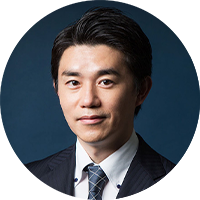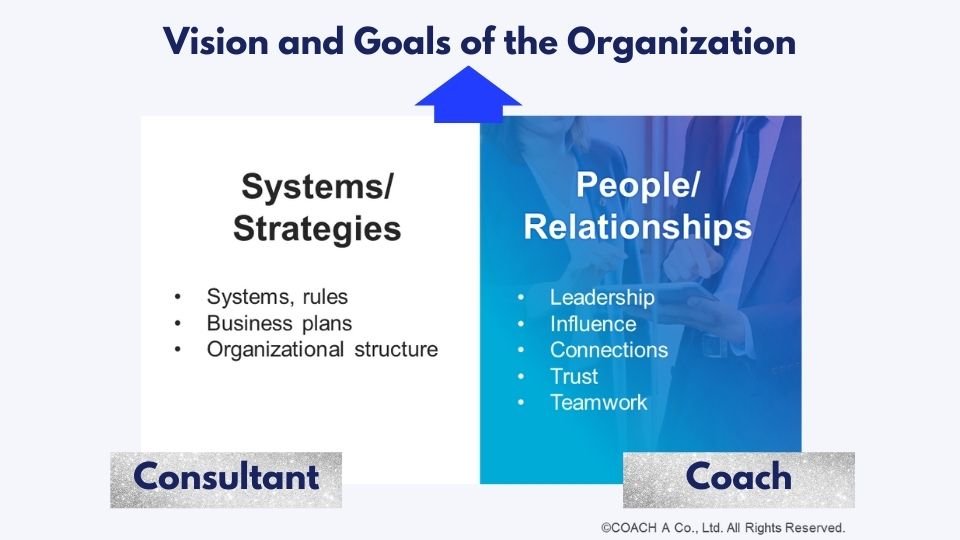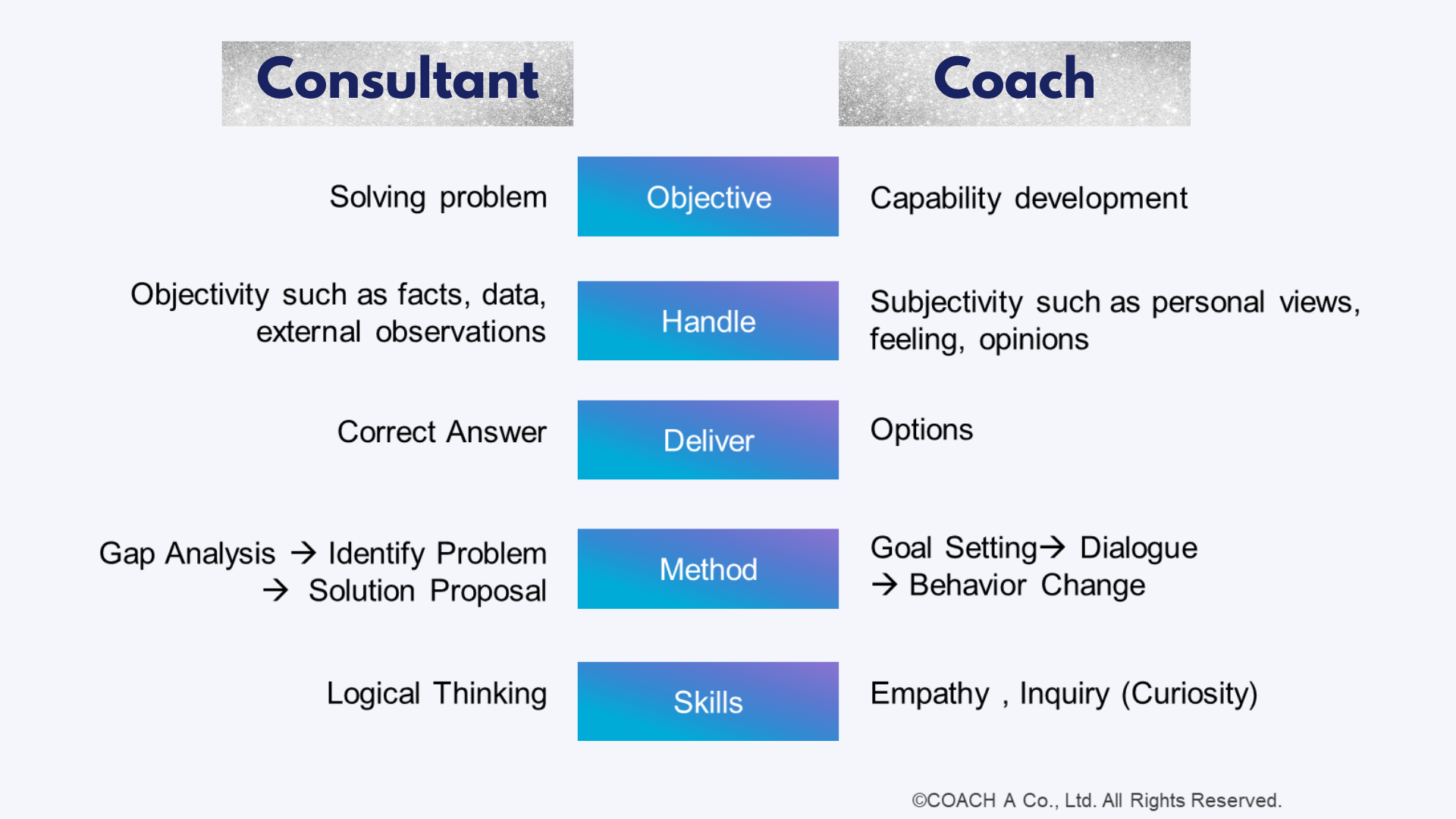Coach's VIEW is a business column authored by executive coaches in COACH A, aimed at providing valuable insights and effective approaches for leveraging coaching to foster organizational and leadership development. The column draws on the latest coaching trends and data, as well as insights from notable global publications on coaching.
Difference between Consulting and Coaching

February 14, 2025

At our company, COACH A, we have started sharing insights through YouTube to raise awareness of our brand. I participated in a session called "Consultants Turned Coaches", where I had a roundtable discussion with our coaches who come from consulting backgrounds.
I worked at Accenture for about 20 years before becoming a coach.. In this column, I'd like to reflect on the differences between consultants and coaches, based on my own journey.
The Rapid Transformation of the Consulting Industry
When I joined the industry as a new graduate, consulting wasn't as prominent as it is today. Now, consulting firms are essential partners for many organizations and have a significant impact on the global economy.
When I first joined Accenture, the company had 2,000 employees in Japan and 75,000 globally. Now, it has over 20,000 employees in Japan and more than 700,000 worldwide.
According to Weekly Diamond's "Consulting Deep Dive", 210 students from the University of Tokyo joined the consulting industry, with Accenture as the top employer (57 hires). At a recent parent meeting for my son, I was surprised to hear Accenture mentioned as a top company for graduates.
A Brief History of Consulting and Coaching
Let's look back on the history of consulting and coaching.
According to The History of Consulting, management consulting began with Frederick Taylor, who proposed scientific management and published The Principles of Scientific Management in 1911, influencing industries worldwide. In 1926, McKinsey & Company was established, and Marvin Bower shaped the foundations of modern management consulting.
By the 1970s, U.S. consulting firms set up offices in Japan, marking over 100 years of history for consulting globally and over 50 years in Japan.
Coaching, originally used in sports, took a pivotal turn in 1974 with the publication of Timothy Gallwey's The Inner Game of Tennis. In the 1990s, coaching became a prominent part of corporate development, with large companies like IBM integrating it into their leadership practices.
In Japan, our predecessor, Coach 21, was founded in 1997. While coaching has a relatively shorter history than consulting, it is increasingly being used for organizational transformation by large corporations. There's growing potential for coaching to make a significant impact on the world, just like consulting.
Differences Between Consulting and Coaching
The differences between consulting and coaching could fill an entire book, but in simple terms, here's how we can categorize them:

When transforming an organization, "strategy and systems" are necessary to achieve the desired goals. However, no matter how great the strategy or system is, it's "people" who drive its success. In this context, we can consider "systems and strategy" alongside "people and relationships" as two essential components of organizational transformation.
Here's a comparison between consulting and coaching in terms of purpose and approach:

In organizational change, "strategy and systems" often receive heavy investments. On the other hand, "people and relationships," which are equally important, tend to be overlooked.
I've experienced this firsthand during a transformation project. As the lead for a project involving a core system overhaul and business transformation, everything seemed on track. We had set the strategy, and the CEO approved it. But when we moved to the implementation phase, we faced strong resistance from employees, questioning why changes were necessary. This resistance led to a breakdown in trust, and the project took twice as long as initially planned.
The Potential for Collaboration Between Consultants and Coaches
James O'Toole, a professor, identified 33 reasons people resist change in his book The Change Master. Some reasons include:
- Ego and pride
- Conflicts due to differing values
- Fear and anxiety about change
- Lack of ownership
These subjective issues, which have no clear solutions, can slow down organizational transformation.
In this regard, coaching offers great potential. Rather than suppressing or disregarding people's subjective experiences, coaching harnesses those emotions to explore collaboration and co-creation. Coaching can catalyze change by transforming people's consciousness and actions.
Some clients have successfully combined the efforts of both consultants and coaches. For example, they have asked us at COACH A to help ignite and sustain the energy for transformation, while handling strategy and systems with consultants.
Since joining COACH A, I've been passionate about fostering collaboration between consultants and coaches. This year, we've made small strides toward creating such examples.
Just as consulting became widely accepted, I believe coaching will also become a standard tool for organizational transformation. Consultants and coaches will collaborate seamlessly, accelerating transformation within Japanese companies and enhancing their global presence.
I'm genuinely excited about this future. Having experience in both consulting and coaching, I look forward to working with my colleagues and clients to shape that future together.
*Regardless of profit, non-profit or intranet, secondary use such as copying, diversion, selling etc. is prohibited without permission.
Language: Japanese
